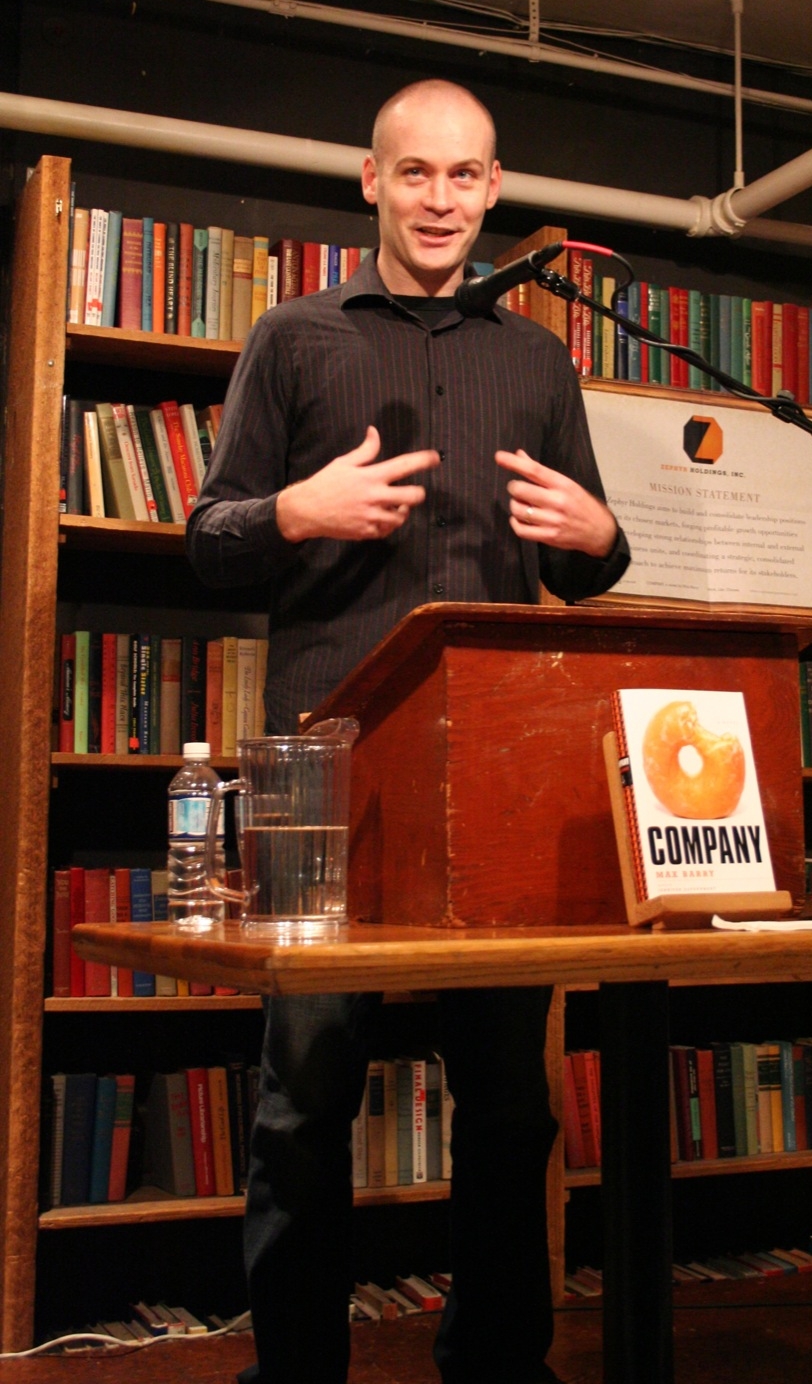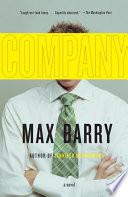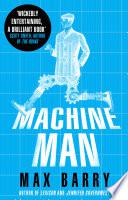Works
Famous Max Barry Quotes
Source: Jennifer Government (2003), Chapter 58
Max Barry Quotes about people
Source: Jennifer Government (2003), Chapter 1, page 5
Source: Jennifer Government (2003), Chapter 51, page 190
October 16, 2005 weblog post http://www.maxbarry.com/2005/10/16/news.html#theywantyou
Source: Jennifer Government (2003), Chapter 40, page 144
Great Writing interviewhttp://www.greatwriting.co.uk/content/view/1038/
Max Barry Quotes
Source: Jennifer Government (2003), Chapter 40, page 138
Source: Jennifer Government (2003), Chapter 53, page 202
Source: Jennifer Government (2003), Chapter 1, page 4
August 24, 2005 weblog post http://www.maxbarry.com/2005/08/24/news.html#retro6
August 8, 2005 weblog post http://www.maxbarry.com/2005/08/08/news.html#girlyman
October 8, 2005 weblog post http://www.maxbarry.com/2005/10/08/news.html#firstreviews
“What’s not fair is that our society rewards selfishness. That’s not fair.”
Source: Jennifer Government (2003), Chapter 5, “Wal-Mart” (p. 18)
“Nobody gives a crap about ethics. That’s why people like me will always be successful.”
Source: Company (2006), p. 335
Holly looks at him blankly. Freddy says, “Jones…you’re still new here People suggest ways to improve the company every day. Their ideas go into the suggestion box in the cafeteria—where the cafeteria was, I mean—and they’re never heard from again, except during all-staff meetings when Senior Management picks out the most useless one and announces a cross-functional team to look into it. A year or two later, when everyone’s forgotten about it, we get an e-mail announcing the implementation of something that bears no resemblance to the initial idea and usually has the opposite effect, and in the annual reports this is used as evidence that the company listens and reacts to its workers. That’s what happens when you try to make Zephyr a better place to work.”
Q4/2: November, pp. 208-209
Company (2006)
“Ninety-five percent of all jobs suck. That’s why people get paid to do them.”
Source: Company (2006), p. 112
“Customers are vermin. They infect companies with disease.”
He says this with complete solemnity. “A company is a system. It is built to perform a relatively small set of actions over and over, as efficiently as possible. The enemy of systems is variation, and customers produce variation. They want special products. They have unique circumstances. They try to place orders with after-sales support and they direct complaints to sales. My proudest accomplishment, and I am being perfectly honest with you here, Mr. Jones, is not the Omega Management System and it associated revenue stream—which, by the way, is extremely lucrative. It is Zephyr. A customer-free company. Listen to that, Mr. Jones. A customer-free company. In the early days, you know, we tried to simulate customers. It was a disaster. Killed the whole project. When we started again, I cut every department that had external customers. It was like shooting a pack of rabid dogs. Now, I’m not claiming Zephyr Holdings is perfect. But we’re getting there, Mr. Jones. We’re getting there.”
Q4/1: October, p. 105
Company (2006)
“There are stories—legends, really—of the “steady job.””
Old-timers gather graduates around the flickering light of a computer monitor and tell stories of how the company used to be, back when a job was for life, not just for the business cycle. In those days, there were dinners for employees who racked up twenty-five years—don’t laugh, you, yes, twenty-five years!—of service. In those days, a man didn’t change jobs every five minutes. When you walked down the corridors, you recognized everyone you met; hell, you knew the names of their kids.
The graduates snicker. A steady job! They’ve never heard of such a thing. What they know is the flexible job. It’s what they were raised on in business school; it’s what they experienced, too, as they drove a cash register or stacked shelves between classes. Flexibility is where it’s at, not dull, rigid, monotonous steadiness. Flexible jobs allow employees to share in the company’s ups and downs; well, not so much the ups. But when times get tough, it’s the flexible company that thrives. By comparison, a company with steady jobs hobbles along with a ball and chain. The graduates have read the management textbooks and they know the truth: long-term employees are so last century.
The problem with employees, you see, is everything. You have to pay to hire them and pay to fire them, and, in between, you have to pay them. They need business cards. They need computers. They need ID tags and security clearances and phones and air-conditioning and somewhere to sit. You have to ferry them to off-site team meetings. You have to ferry them home again. They get pregnant. They injure themselves. They steal. They join religions with firm views on when it’s permissible to work. When they read their e-mail they open every attachment they get, and when they write it they expose the company to enormous legal liabilities. They arrive with no useful skills, and once you’ve trained them, they leave. And don’t expect gratitude! If they’re not taking sick days, they’re requesting compassionate leave. If they’re not gossiping with co-workers, they’re complaining about them. They consider it their inalienable right to wear body ornamentation that scares customers. They talk about (dear God) unionizing. They want raises. They want management to notice when they do a good job. They want to know what’s going to happen in the next corporate reorganization. And lawsuits! The lawsuits! They sue for sexual harassment, for an unsafe workplace, for discrimination in thirty-two different flavors. For—get this—wrongful termination. Wrongful termination! These people are only here because you brought them into the corporate world! Suddenly you’re responsible for them for life?
The truly flexible company—and the textbooks don’t come right out and say it, but the graduates can tell that they want to—doesn’t employ people at all. This is the siren song of outsourcing. The seductiveness of the subcontract. Just try out the words: no employees. Feels good, doesn’t it? Strong. Healthy. Supple. Oh yes, a company without employees would be a wondrous thing. Let the workers suck up a little competitive pressure. Let them get a taste of the free market.
The old-timers’ stories are fairy tales, dreams of a world that no longer exists. They rest on the bizarre assumption that people somehow deserve a job. The graduates know better; they’ve been taught that they don’t.
Source: Company (2006), pp. 41-43



